Extended Shutdown of Chinese Certification Authorities Due to New Coronavirus
Due to the coronavirus that is currently spreading in China, the Chinese government has already taken extensive measures to curb the spread of the virus inside and outside of China.

In addition to the proclamation of the quarantine status for the city of Wuhan and several cities in the surrounding area, the holidays for the Chinese New Year have now been extended for many authorities and test laboratories. We assume that most of the certification authorities and test laboratories will resume their work on February 10, 2020.
According to current information, up to this day most certification authorities, test laboratories and customs offices in China are closed and many employees will not work in the office which may result in delays in the application process.
MPR China Certification GmbH and China Certification Corporation continue to support you as usual with all your inquiries and concerns about the subject of certification. Please do not hesitate to contact us with any questions about this topic.
We will keep you up to date on further developments and influences on the certification processes.
For more information on how CCC certification and voluntary CCAP or CQC certification may affect your company, or for more information about CCC certification in general, the process, and the associated costs, please visit our website and our News Section where you will find current updates twice a week.
Please do not hesitate to contact us for further details and consultation. You can contact us via e-mail, or call us (UK: +44 2071931135, Rest of Europe: +49 69 2713769150, US: +1 773 654-2673).
You can also check out our free CCC-Brochure, which can be downloaded right here as a PDF file or you consult our book (in English) “A Brief Guide to CCC: China Compulsory Certification”, which can be found directly hier on Amazon.
Here you can download our brochure about the voluntary CCAP or CQC certification.
Battery Registration in China is a Critical Factor for Electric Vehicle Manufacturers
The ramp-up of local production of the Tesla Model 3 in China is in full swing and executives reported that the new factory already reached their short-term production target of 1000 cars per week. With the start of deliveries, Tesla reduced the price of the car by 16% to 299,959 RMB ($42,919) after subsidies.

A closer relationship to Chinese suppliers can offer a simplified solution for achieving conformity to national standards. Battery systems for electric vehicles, for example, must comply with special coding requirements according to GB/T 34014 and complete a battery registration process in China. The aim is to ensure a better traceability over the entire life-cycle of the battery.
In the future the new Tesla plant near Shanghai is expected to also take over parts of the battery production, but this will require further upgrades to the factory. Currently, Tesla is receiving batteries for the locally produced cars from LG Chem, which are also manufactured in China. The choice for LG Chem as its battery supplier already signals a departure from retaining Panasonic as their long-standing exclusive battery supplier.
Reports surfaced in November 2019 that Tesla has reached a preliminary agreement with the biggest Chinese battery producer CATL (Contemporary Amperex Technology Co.). CATL could become a supplier for Tesla in China during 2020 already and is said to be in further talks for also supplying other Tesla factories worldwide.
If you also deliver battery systems to China and have questions around complying with the requirements of GT 34014-2017, you can contact us any time.
Call us directly: EU: +49-69-2713769150, UK: +44-2071931135, US: +1-773-654-2673 or send us an Email.
Workshop Export BRIC + SA in Frankfurt
On March 25, 2020 the export industry ICS GmbH (Exportwirtschaft ICS GmbH) will hold the “Workshop: Export BRIC + SA” in Frankfurt. MPR China Certification GmbH will contribute to the event by introducing the participants to the various certifications required for China and India.
The BRIC states, consisting of Brazil, Russia, India and China, make up a quarter of the worldwide economic performance. They are the most important production locations and sales market for many industries. These countries face many challenges and are very diverse, especially with regards to tariffs and certification standards as well as Saudi Arabia with high technical regulations.
If a product needs to be certified remains one of the most common issues for many manufacturers. This is why the seminar aims to provide detailed instructions and solutions and strategies for export businesses. The different workshops focus on case studies and concentrate on specific topics. MPR China Certification will present the topic of China certifications and will also give a talk on certifications for the Indian market.

The most important Chinese certification is the CCC certification, which is similar to the European CE marking. CCC is mandatory for a wide range of products, some of which include toys, safety glass and automotive seats/headrests to name a few. For specific product areas there are also other relevant certifications such as telecommunications products which may require a SRRC registration and/or NAL certification. Other products such as refrigerators, air conditioners and other energy-intensive appliances may only be imported into China with a valid China Energy Label (CEL). Depending on the product other certification may also need to be considered.
Similar to the Chinese market, the Indian certification landscape also has a broad range of different product certifications. There is AIS/TAC for Automotive, BIS for electronic equipment, WPC for wireless products & radio, TEC for telecommunication equipment as well as PESO for products for the Oil and Gas industries.
All interested parties are cordially invited to register with the Exportwirtschaft ICS GmbH for the Workshop. By making your reservation prior to Feb. 14, 2020 you will benefit from an exclusive early bird discount! The venue is in Frankfurt/Main, Germany.
Further information about the event as well as participation possibilities can be found on the website of Exportwirtschaft ICS GmbH (German).
Since 2005, the MPR China China Certification GmbH has been helping companies around the world obtain certifications for the Chinese and Indian markets. If you would like more Information regarding the certifications, please visit our website or contact us via email or phone +49692713769150.
Certification Authorities in China Closed for Chinese New Year
In 2020 the Chinese New Year falls on January 25, 2020 and heralds so the year of the rat. The date of this event, which is also known as spring festival, varies from year to year as it goes by the lunar calendar. Chinese New Year is the most important holiday in China, therefore authorities and companies close a few days ahead to allow employees time to travel to their home.
The Chinese authorities will be closed for several days. According to official information the CQC (China Quality Certification Centre) will be closed from January 23, 2020 to January 31, 2020. The test labs will be closed during the same time period. The CCAP (China Certification Centre for Automotive Products) will also be closed from January 23, 2020 to February 3, 2020. So, it is expected that there will be delays for all ongoing certification processes.
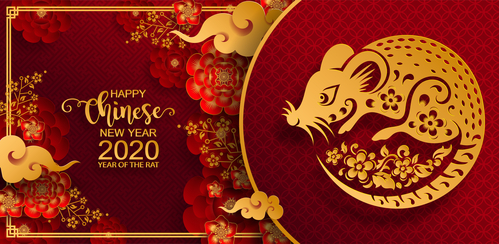
MPR China Certification GmbH in Germany, as well as the subsidiaries in the US and China will be open and working as usual. We will gladly continue to support you with your certification processes during Chinese New Year.
For more information on how CCC certification may affect your company, or for more information about CCC certification in general, the process, and the associated costs, please visit our website and our News Section where you will find current updates twice a week.
Please do not hesitate to contact us for further details and consultation. You can contact us via e-mail, or call us (UK: +44 2071931135, Rest of Europe: +49 69 2713769150, US: +1 773 654-2673).
You can also check out our free CCC-Brochure, which can be downloaded right here as a PDF file or you consult our book (in English) “A Brief Guide to CCC: China Compulsory Certification”, which can be found directly here on Amazon.
Publication of the CNCA Implementation Rules for the CCC Self-Declaration
On December 25, 2019 the Certification and Accreditation Administration of the People’s Republic of China (CNCA) published the new Implementation Rules for the CCC Self-Declaration (CNCA-00C-008: 2019).
In the new Implementation Rules the procedures for the CCC Self-Declaration/ China Supplier Declaration of Conformity (SdoC), the transmission of compliance information, the CCC logo, the supervision and the definition of the duties of the relevant responsible parties were defined. In addition, the new Implementation Rules added the requirements for the CCC Self-Declaration based on the Voluntary Product Certification and the implementation requirements for the China Self-Declaration in the ODM model (ODM: Original Design Manufacturer).
The China SdoC process is divided into two different types depending on the type of test laboratory used: the self-selected or designated laboratory. In both cases, the manufacturer must carry out a CCC self-inspection and prepare a self-inspection report of the quality assurance capabilities of the production facility. The test laboratory is responsible for preparing the type test report or the manufacturer carries out a Voluntary Certification that includes the type test and the factory inspection.
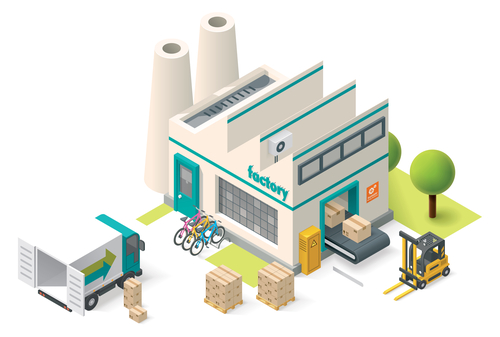
Manufacturers and laboratories for the CCC Self-Declaration and certification bodies must register in the “Information system for Self-Declaration of the mandatory certification of product conformity” and provide relevant organizational information and qualification documents. Among other things, applicants who order production in ODM mode must submit information such as the ODM agreement. Under the ODM mode, changes that affect the technical characteristics of the product must be applied by the original self-declared manufacturer of the ODM. Other associated self-declared ODM manufacturers should complete any kinds of changes to the certification within one month. Otherwise the system will cancel the corresponding ODM Self-Declaration.
After the Supplier Declaration of Conformity has been issued, the manufacturer shall apply the CCC logo to the product. The CNCA monitors the results of the Self-Declaration and the use of the CCC logo. In the event of violations of implementation regulations, such as the failure of product safety tests, quality and safety accidents due to product defects or the transmission of incorrect information to the system, the CNCA system will revoke the corresponding CCC SdoC and determine the consequences. As a result of revocation, the manufacturer cannot request a CCC Self-Declaration again within 6 months, and the information about the violations will be included in the national system for corporate credit information (social credit rating).
The CCC Self-Declaration must not be confused with an omission of the need for CCC certification and the compliance regulations – all relevant GB standards and CNCA Implementation Rules remain valid and product compliance must continue to be proven during production by conducting annual product tests according to the GB standard.
In order to be allowed to go through this process of China Compulsory Certification Self-Declaration, the applicant must be a Chinese company with a Chinese contact person in China. The applicant may only be a subsidiary or the dealer/importer of the manufacturer.
We can offer customers without a company in China the placement of a CCC applicant service to overcome this hurdle.
You can find more information on this service here.
Here you can download our detailed brochure about the CCC Self-Declaration.
In order to prove the product compliance it makes sense to obtain a voluntary CQC or CCAP certification in addition to the CCC Self-Declaration.
Here you can download our brochure about the Voluntary CQC and CCAP Certification.
Please contact us if you have any questions regarding the new regulations, Voluntary Certifications, the CCC Self-Declaration or the transformation of CCC Certificates.
You can contact us via email, or call us (Europe: +49 69 2713769150, UK: +44 2071931135, US: +1 773 654-2673).
Announcement from CQC on further improvements to the CCC Self-Declaration Process
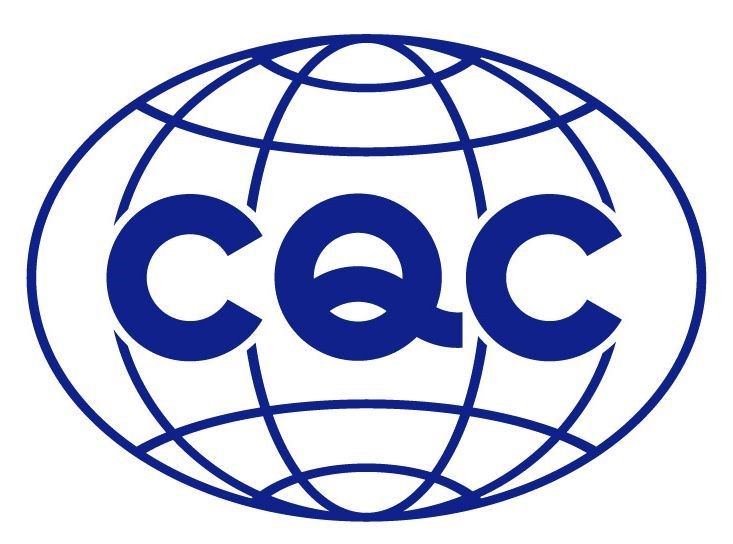
In December 2019 the CNCA had already announced, that old test reports from existing CCC certificates will be accepted for the application of the CCC Self-Declaration.
You can find our news about this topic here.
When converting existing CCC certificates to a voluntary CQC mark certification, CQC (China Quality Certification Centre) offers several services related to the CCC Self-Declaration/ China Supplier Declaration of Conformity (SDoC) in order to simplify the process. Nevertheless, the general requirements for the CCC Self-Declaration, a Chinese applicant for instance, still have to be fulfilled.
The applicant may only be a subsidiary or the dealer/importer of the manufacturer.
We can offer customers without a company in China the placement of a CCC applicant service to overcome this hurdle.
You can find more information on this service here.
The information transfer is also being offered for products that apply for an initial voluntary certification and have to apply for a China Self-Declaration for CCC conformity as a consequence of the CNCA announcement No. 44.
Furthermore, the CQC confirms that they will continue to conduct follow-up inspections and other post-certification supervision activities until October 31, 2020 in accordance with the relevant Implementation Rules in order to ensure the continued validity of existing CCC certificates. This date is the deadline to convert all certificates from affected product categories to the Self-Declaration of Compulsory Product Certification (SDoC).
After completing the application of the CCC Self-Declaration, the old CCC certificates need to be cancelled from the certification authority.
If one converts to voluntary certification and applies for the Self-Declaration of Compulsory Product Certification (SDoC) on that basis, the respective CCC certificates will automatically be cancelled by the authority after completion of the CCC self-declaration process.
The CCC Self-Declaration must not be confused with an omission of the need for CCC certification and the compliance regulations.
All relevant GB standards and CNCA Implementation Rules remain valid and product compliance must continue to be proven during production by conducting annual product tests according to the GB standard. All affected products will still need to be marked with the CCC logo.
Hereyou can download our detailed brochure about the CCC Self-Declaration.
In order to prove the product compliance it makes sense to obtain a voluntary CQC or CCAP certification in addition to the CCC Self-Declaration.
Here you can download our brochure about the Voluntary CQC and CCAP Certification.
Please contact us if you have any questions regarding the new regulations, Voluntary Certifications, the CCC Self-Declaration or the transformation of CCC Certificates.
You can contact us via email, or call us (Europe: +49 69 2713769150, UK: +44 2071931135, US: +1 773 654-2673).
New trends and developments in the field of vehicle interiors
The topics of well-being, comfort and individuality are becoming increasingly important for the latest developments of automotive suppliers in the field of vehicle interiors. In addition to technological progress, customers are also focusing on materials, because the interior of a vehicle is increasingly becoming a living and working space. A study by automotive supplier Continental shows that car drivers in China spend around two hours a day in their cars. As driving is increasingly automated, driver and passenger entertainment and a pleasant atmosphere in the vehicle interior will become increasingly important.
The smell in the passenger compartment is of particular importance on the Chinese market. The majority of car customers find the typical smell of a new car, i.e. when the vehicle is fresh from the factory, unpleasant. According to a survey by J.D. Power China, the smell ranks before the fuel consumption of a vehicle. Continental engineers are therefore working on a method to enrich the materials in the interior with a scent. Existing raw materials such as fabrics and plastics are used and enriched with the harmless fragrance, which, according to the developers, smells of orange, green tea and men’s perfume, and is perceptible for six to eight months. The quality of the air in the vehicle interior is also guaranteed, as the material is free of stabilizers containing heavy metals. In addition, the guidelines on limit values for volatile organic compounds (VOC), which have been in force in China since March 2012, have been met, says Cai Dongdan, head of the Continental development team.
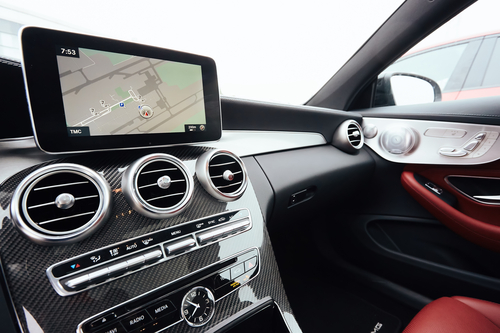
The expansion of the classic cockpit with connected and smart functions is also a topic for suppliers. Preh Car Connect (PCC) is working with its Chinese sister company JPCC from Ningbo on displays for drivers and passengers. The unit, which consists of a total of three touchscreens, can also use V2X technology to exchange information with other vehicles, analyze it and present it on the display as warning and safety instructions. Faurecia has invested in Creo Dynamics, a Swedish specialist for acoustic and ANC solutions (Active Noise Control), to improve sound and audio reproduction in the passenger compartment. Faurecia Clarion Electronics’ audio systems are designed to deliver a new kind of sound to occupants with intelligent loudspeakers in the headrests, active surfaces and digital sound management. Most automotive and electronics products must pass the mandatory CCC certification for import to China or production in the country. We will be happy to advise you on the detailed regulations, procedures and costs involved in obtaining CCC (China Compulsory Certificate) certification.
For more information on how CCC certification may affect your company, or for more information about CCC certification in general, the process, and the associated costs, please visit our website and our News Section where you will find current updates twice a week.
Please do not hesitate to contact us for further details and consultation. You can contact us via e-mail, or call us (UK: +44 2071931135, Rest of Europe: +49 69 2713769150, US: +1 773 654-2673).
You can also check out our free CCC-Brochure, which can be downloaded right here as a PDF file or you consult our book (in English) “A Brief Guide to CCC: China Compulsory Certification”, which can be found directly hier on Amazon.
New technologies for vehicle tyres
In November 2019, Pirelli presented its Cyber Tire at a 5G Automotive Association conference in Turin. The intelligent tire developed by the tire manufacturer is equipped with sensors that analyze the road surface and environmental data and transmit it via a 5G data link to a server and other road users. At the presentation of a prototype, the tire is mounted on an Audi A8 and sends real-time warnings about slippery road conditions to a following Audi Q8. The Cyber Tire uses the high bandwidth of 50 Mbit/s and the low latency of a maximum of 20 milliseconds of the 5G wireless network.
Unlike today’s rim-mounted sensors that measure tire pressure, a tire-mounted sensor can measure three-dimensional forces and detect and communicate water, ice, and other difficult road conditions to the driver, said Corrado Rocca, head of Cyber R&D at Pirelli. In addition, the Cyber Tire can collect information about mileage, tire model and load to date.
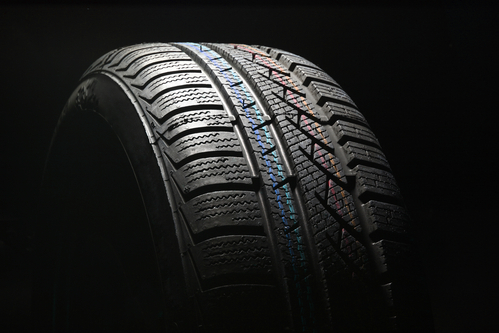
The German tire manufacturer Continental, on the other hand, is researching self-repairing tires. While already available run-flat tires, which can be used for up to 50 kilometers in the event of a puncture due to the extremely stiff sidewalls of the tire, Continental’s new development is based on a viscous mass in the tire shell. According to Continental, the driver would not notice any damage to the tyre at first, but replacement or proper repair is required afterwards. Other brands such as Hankook, Pirelli or Michelin are also working on this concept. Michelin’s Primacy tyre model with this same technology will even be fitted as standard in the Ford Explorer from 2020.
Michelin and GM are taking a drastic step in tyre development. From a joint development, the companies presented the Uptis, a tyre without air filling. The novelty, reminiscent of an extension of the rim structure, consists of a composite material made of rubber and fibreglass and a very thin tread. In addition to the advantage of eliminating air loss and flat tyres, the Uptis also requires less rubber during production and the spare wheel can be completely eliminated. GM will begin testing the tyres on a Chevrolet Bolts fleet at the end of 2019 and expects series production around 2024. Conventional inflatable tyres, on the other hand, are subject to stricter standards for import into China. The new CNCA implementing regulations for the CCC certification of air tyres for passenger cars, trucks and motorcycles came into force as early as January 2016. Please do not hesitate to contact us for further information regarding the mandatory CCC certification and the correct marking of your products.
For more information on how CCC certification may affect your company, or for more information about CCC certification in general, the process, and the associated costs, please visit our website and our News Section where you will find current updates twice a week.
Please do not hesitate to contact us for further details and consultation. You can contact us via e-mail, or call us (UK: +44 2071931135, Rest of Europe: +49 69 2713769150, US: +1 773 654-2673).
You can also check out our free CCC-Brochure, which can be downloaded right here as a PDF file or you consult our book (in English) “A Brief Guide to CCC: China Compulsory Certification”, which can be found directly hier on Amazon.
Announcement from the CNCA on Further Improving the Self-Declaration Process
In October 2019 the Chinese certification authority CNCA announced that several product groups are no longer subject to mandatory CCC certification and that other product groups will now fall under CCC Self-Declaration mode. Products that are now in the Self-Declaration/ China Supplier Declaration of Conformity (SdoC) mode, can only get CCC through this process and all previously CCC certified products in this group will need to be converted to CCC Self-Declaration by October 31, 2020. You can find a detailed article about this announcement and the affected product groups here.
In their latest announcement No. 26 from December 30, 2019 the CNCA gave more detailed information on Self-Declaration evaluation method and relevant requirements as well as the updated Implementation Rules. The new implementation rule for Self-Declaration is CNCA-00C-008: 2019 which will replace CNCA-00C-008: 2018.
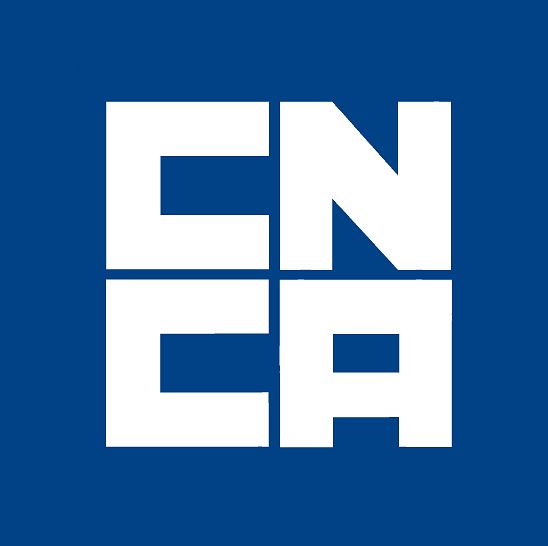
In order to make it easier for the companies that hold CCC certificates to complete the conversion to the CCC Self-Declaration on time, the requirements for reporting product compliance information has been simplified. The CNCA will accept old test reports for products which have a valid CCC certificate. For these products no new test reports have to be submitted for the conversion to Self-Declaration of Compulsory Product Certification. The CNCA will use an online system in the future where the old CCC number can be used to link the test report to the Self-Declaration of Certification application automatically.
For products that meet the following conditions at the same time the certification client may use the existing CCC certificate(s) to apply to the issuing authority for the CCC certificate(s) that applies only to this batch of products:
- Shipped before November 1, 2020, and the CCC certificate is valid at the time of shipment;
- Imported after November 1, 2020, and the CCC certificate at the time of import was cancelled on November 1, 2020 because of the Self-Declaration conversion period.
The CCC SDoC must not be confused with an omission of the need for CCC certification and the compliance regulations – all relevant GB standards and CNCA Implementation Rules remain valid and product compliance must continue to be proven during production by conducting annual product tests according to the GB standard. All affected products will still need to be marked with the CCC logo.
In order to be allowed to go through this process of China Compulsory Certification Self-Declaration, the applicant must be a Chinese company with a Chinese contact person in China. The applicant may only be a subsidiary or the dealer/importer of the manufacturer.
We can offer customers without a company in China the placement of a CCC applicant service to overcome this hurdle.
You can find more information on this service here.
Here you can download our detailed brochure about the CCC Self-Declaration.
In order to prove the product compliance it makes sense to obtain a voluntary CQC or CCAP certification in addition to the CCC Self-Declaration.
Here you can download our brochure about the Voluntary CQC and CCAP Certification.
Please contact us if you have any questions regarding the new regulations, Voluntary Certifications, the CCC Self-Declaration or the transformation of CCC Certificates.
You can contact us via email, or call us (Europe: +49 69 2713769150, UK: +44 2071931135, US: +1 773 654-2673).
China’s Oldest Nuclear Power Reactor Passes Long Term Safety Review
The pressurized water reactor Qinshan 1 in the Chinese province of Zhejiang was built in 1991 with an original capacity of 300 MWe. Earlier in 2019 the generating capacity had been uprated to 350 MWe and the operator applied for an extension of its operating license at China’s National Nuclear Safety Administration (NNSA). The current operating license would expire in 2021 and the goal is to renew it for another 20 years.

At the same time an international expert team from the International Atomic Energy Agency (IAEA) has completed a review of the long-term operational safety of the nuclear reactor. After an initial review in 2017, this year’s review was a follow-up to assess the progress of implementing the recommendations to improve operational safety.
The review team noted improvements in the programs to manage ageing electrical and control components and the implementation of internal knowledge management processes. A full report has been handed over to the plant operator and the NNSA for comments.
The recently upgraded capacity is a result of the continuous improvements and technical updates that have been implemented over the years, and reflect the progress of China’s nuclear program.
Many components for nuclear power plants require a HAF 604 registration for the Chinese market.
Without a HAF 604 approval the use of the many nuclear components is not possible in China.
Please contact us with any questions regarding the HAF 604 Certification or the Chinese nuclear market in general. Send us an Email or call us: +49 69 2713769150



